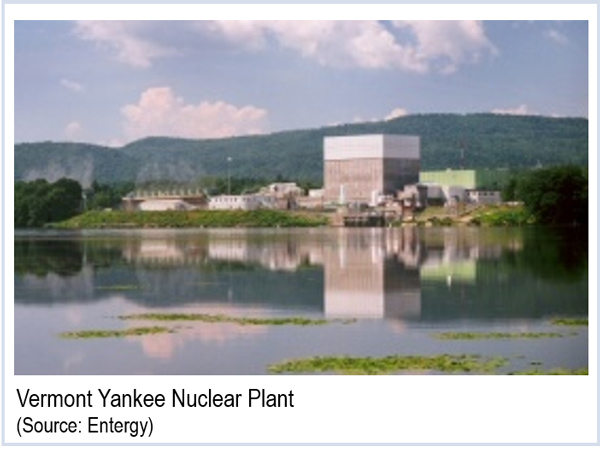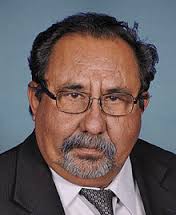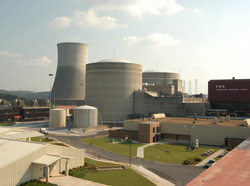The Department of the Interior on Friday released its long-awaited rules for oil and gas development on federal and tribal lands, which could set a nationwide standard for the controversial practice of hydraulic fracturing.
The new rules require more stringent standards for storage of wastewater produced from fracking and for drilling companies to disclose chemicals used in the hydraulic fracturing process. Exploration companies will also have to provide more information about nearby existing wells, which can inadvertently become pathways for fracking fluids to migrate into groundwater.
“We need to update our regulations to make sure they can keep up with evolving technologies and innovation by industry,” Interior Secretary Sally Jewell said.
While the rules will govern only about a tenth of drilling sites, mostly in Western states, the new regulations set a national standard that might be applied to states where oil and gas regulations are more lenient. “We think this is going to be a template for how the federal government expects the states to regulate water as part of their own oversight of fracking,” said Kevin Book, managing director of energy research firm ClearView Energy Partners.
The oil and gas industry’s supporters criticized the rules as too harsh and said they would increase costs for drillers whose margins already have been depressed by slumping energy prices. “America’s energy boom is one of the best things going for our economy and keeping it going should be one of the federal government’s top priorities,” said House Speaker John Boehner (R-Ohio).
Some environmental groups said the rules weren’t stringent enough. The rules have been in the works since 2012 and took into account 1.5 million public comments.
“There is a lot of fear and public concern, particularly about the safety of groundwater and the impact of these operations,” Jewell said. “We believe these standards are essential.”
More: The Wall Street Journal (subscription required); The Hill
NRC Gives Westinghouse OK to Test Modular Reactor

The NRC issued its Safety Evaluation Report after the company submitted detailed analyses on what would happen in the event of a small loss of coolant accident, or LOCA. Westinghouse said its passive safety systems eliminate the potential for a larger LOCA.
The 225-MW pressurized water reactor’s design is adapted from the company’s larger AP1000 reactor, which received a design certification amendment from the NRC in 2011.
More: Nuclear Street
NRC Denies Vermont’s Request to Delay Review of Vermont Yankee Decommission Plan

State officials have expressed concern that Entergy, the plant’s operator, wants to cut emergency preparedness procedures for the plant during decommissioning. The NRC said the state did not file a timely request to delay the review by the Atomic Safety and Licensing Board. The commission said the state could refile its request.
More: Bennington Banner News
NRC Paying for Yucca Groundwater Studies

The Department of Energy, which is no longer interested in developing the site, decided not to fund the groundwater study. The NRC, which is considering revitalizing the nuclear waste storage project, announced it will fund the study ahead of public sessions scheduled for September.
More: Las Vegas Review-Journal
DOE Buying 5 Million Barrels of Crude to Replace Stock Sold Last Year
The Department of Energy is buying 5 million barrels of crude oil to replace an amount it sold last year out of the U.S. Strategic Petroleum Reserve in a test sale.
The markets are working in the government’s favor, as oil prices have plummeted more than 50% since March 2014, when it sold the oil for an average price of $93.75 a barrel. The average price of sweet crude was about $47.05 a barrel last week.
By law, the department is required to replace any stocks sold within a year. The strategic petroleum reserve, with a total capacity of 727 million barrels, currently stands at about 691 million barrels.
More: The Wall Street Journal (subscription required)
University of Delaware Declines Congressional Request for Funding Info on Climate Denier

The University of Delaware declined a request from the ranking Democrat on the House Committee on Natural Resources to disclose the funding received by David R. Legates, a climate-change skeptic.
U.S. Rep. Raul Grijalva of Arizona demanded to know the sources of funding for Legates, a climatology professor who has co-authored several contrarian studies with Wei-Hock Soon, who received funding from the Southern Co. Legates was the state climatologist until he was fired in 2011, in part for refusing to stop using his title when spreading his skeptical views on climate change.
The university cited academic freedom for declining to provide Legates’ funding sources.
More: Inside Climate News
NRC Gives Environmental OK for TVA’s Sequoyah Nuke Plant

The NRC approved the assessment at the twin-unit plant despite challenges from activists who argued that TVA hasn’t made necessary safety improvements in response to the Fukushima disaster in Japan. “The NRC side-stepped most of the complaints that we raised,” said Louis Zeller, executive director for the Blue Ridge Environmental Defense League.
If the final license extension is approved, TVA would be able to operate both 1,148-MW units until 2041.
More: Chattanooga Times-Free Press
— Ted Caddell


